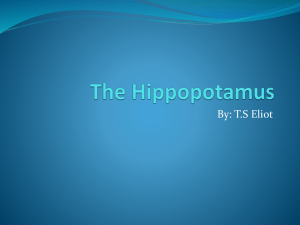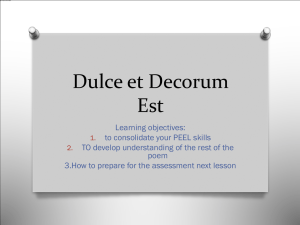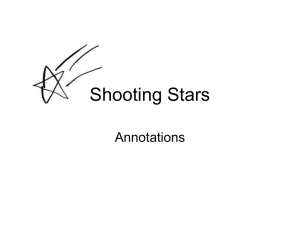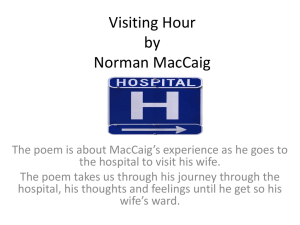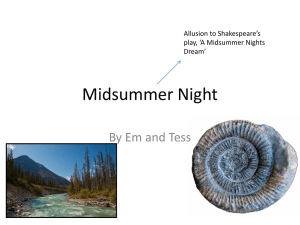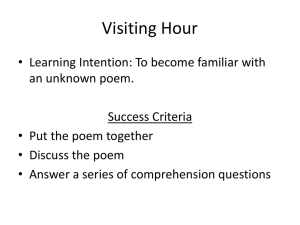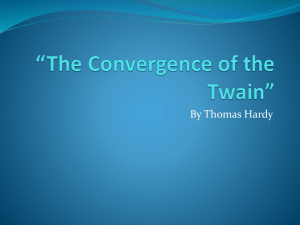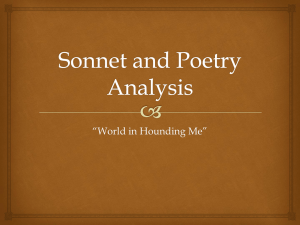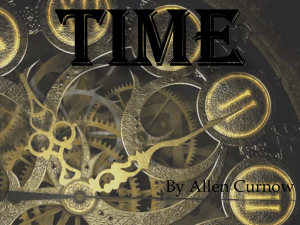Exposure notes - St Cuthbert Mayne GCSE English
advertisement
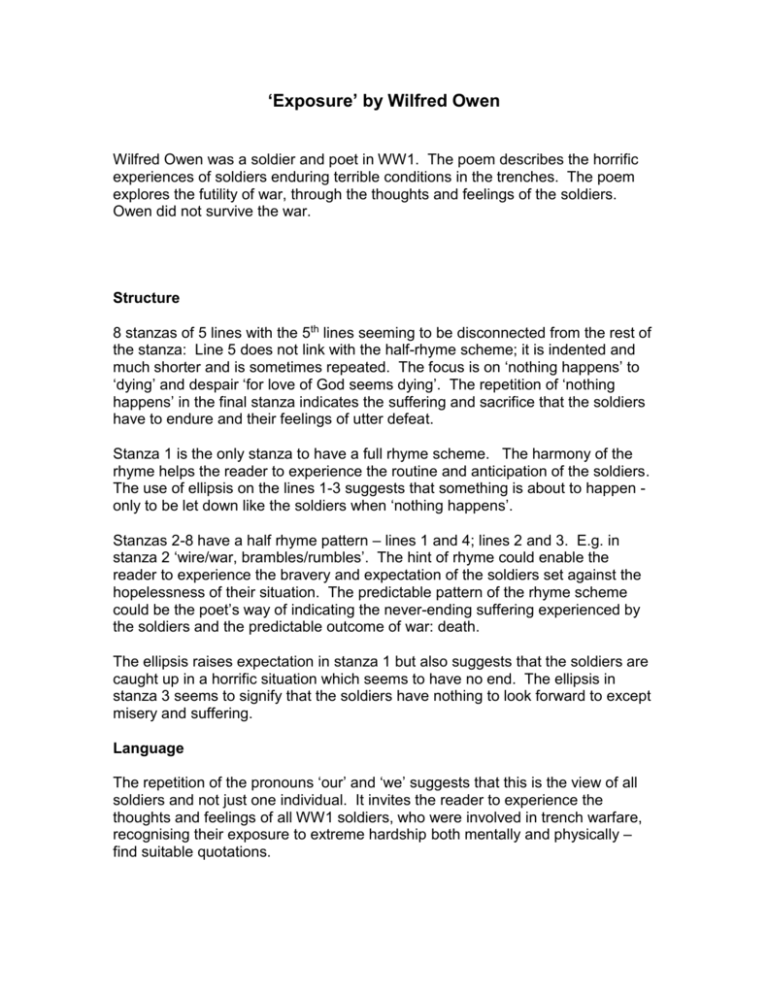
‘Exposure’ by Wilfred Owen Wilfred Owen was a soldier and poet in WW1. The poem describes the horrific experiences of soldiers enduring terrible conditions in the trenches. The poem explores the futility of war, through the thoughts and feelings of the soldiers. Owen did not survive the war. Structure 8 stanzas of 5 lines with the 5th lines seeming to be disconnected from the rest of the stanza: Line 5 does not link with the half-rhyme scheme; it is indented and much shorter and is sometimes repeated. The focus is on ‘nothing happens’ to ‘dying’ and despair ‘for love of God seems dying’. The repetition of ‘nothing happens’ in the final stanza indicates the suffering and sacrifice that the soldiers have to endure and their feelings of utter defeat. Stanza 1 is the only stanza to have a full rhyme scheme. The harmony of the rhyme helps the reader to experience the routine and anticipation of the soldiers. The use of ellipsis on the lines 1-3 suggests that something is about to happen only to be let down like the soldiers when ‘nothing happens’. Stanzas 2-8 have a half rhyme pattern – lines 1 and 4; lines 2 and 3. E.g. in stanza 2 ‘wire/war, brambles/rumbles’. The hint of rhyme could enable the reader to experience the bravery and expectation of the soldiers set against the hopelessness of their situation. The predictable pattern of the rhyme scheme could be the poet’s way of indicating the never-ending suffering experienced by the soldiers and the predictable outcome of war: death. The ellipsis raises expectation in stanza 1 but also suggests that the soldiers are caught up in a horrific situation which seems to have no end. The ellipsis in stanza 3 seems to signify that the soldiers have nothing to look forward to except misery and suffering. Language The repetition of the pronouns ‘our’ and ‘we’ suggests that this is the view of all soldiers and not just one individual. It invites the reader to experience the thoughts and feelings of all WW1 soldiers, who were involved in trench warfare, recognising their exposure to extreme hardship both mentally and physically – find suitable quotations. Personification – The weather appears to be a real figure (NB Death in ‘Invasion’) that is attacking the men ‘the merciless iced east winds that knive us’ causing pain and suffering. It is spiteful and hostile towards the men as if it is a real enemy. The verb ‘tugging’ in stanza 2 suggests violence and ruthlessness. The men are more afraid of the weather than the opposing army. The bullets are described as ‘less deadly’. It appears to be sinister in stanza 5 as ‘pale flakes with fingering stealth come’ waiting to attack its human prey. In stanza 3, ‘Dawn’ is personified with military imagery ‘massing, army, attacks, shivering ranks’ indicating force and hostility. Dawn is usually associated with hope and new beginnings rather than ‘misery’ and ‘melancholy’ (NB ‘Invasion’). ‘Frost’ appears to be used as an image of death. It is used throughout the last stanza. ‘All their eyes are ice’ suggests both a physical death for those who have died and a living death for those still alive. ‘Ice’ links back to stanza 1 suggesting that the ending is inevitable. Sibilance used to indicate the silence experienced by the soldiers in stanza and to create a feeling of despair in stanza 3 as ‘clouds sag stormy’. In stanza 4 it suggests that the enemy is to be feared less than the weather by muffling the sound of the ‘bullets’. In stanza 5 it sounds as though that the men are being lulled to sleep by the deadly snow. Negative words such as ‘wearied’, ‘drooping’, ‘worried’ ‘dull’, ‘sag’ ‘drag’ together with the soft sound of ‘f’ which is repeated in the 4-8 create a bleak and depressing tone. Images and language used to describe home contrasts with the experiences in the trenches: Sleepy, warm, spring-like with happy sound of nature where ‘crickets jingle’ instead of being ‘awake’, ‘shivering’ and ‘silent’. The silence suggests the absence of life which has been destroyed by war. Essay title Explain how Wilfred Owen presents the horror of war in ‘Exposure’. Use evidence from the poem to support your answer.
